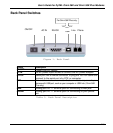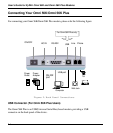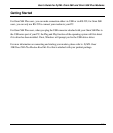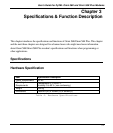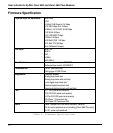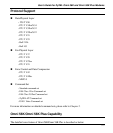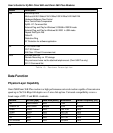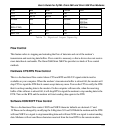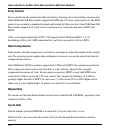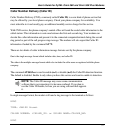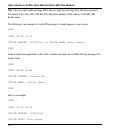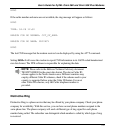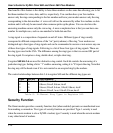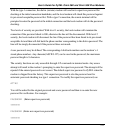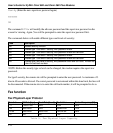
User's Guide for ZyXEL Omni 56K and Omni 56K Plus Modems
3-5
V.32 4800 2400 4-DPSK 1800
V.23 1200/75 1200/75 FSK
V.23 600/75 600/75 FSK
V.22bis 2400 600 16-QAM 1200 Call
2400 Ans
V.22
(BELL 212A)
1200 600 4-DPSK 1200 Call
2400 Ans
V.21 300 300 FSK
BELL 103 300 300 FSK
Table 7. Physical Layer Capacity
Flow Control
This feature refers to stopping and restarting the flow of data into and out of the modem’ s
transmission and receiving data buffers. Flow control is necessary so that a device does not receive
more data than it can handle. The Omni 56K/Omni 56K Plus provide two kinds of flow control
methods.
Hardware CTS/RTS Flow Control
This is a bi-directional flow control where CTS and RTS are RS-232 signals which must be
available on your computer. When the modem’ s transmission buffer is almost full, the modem will
drop CTS to signal the DTE that it cannot accept data any more. Turn on the CTS to notify the DTE
that it can keep sending data to the modem. On the computer software side, when the receiving
buffer of the software is almost full, it will drop RTS to signal the modem to stop sending data to the
DTE. Turn on the RTS and the modem will start sending data again to the DTE.
Software XON/XOFF Flow Control
This is a bi-directional flow control. XON and XOFF character defaults are decimals 17 and
19.These can be changed by modifying the S-Registers S31 and S32.Both the modem and the DTE
will treat XOFF as a signal to stop transmitting data and will treat XON as a signal to restart sending
data. Modems will not send these characters received from the local DTE to the remote modem.



